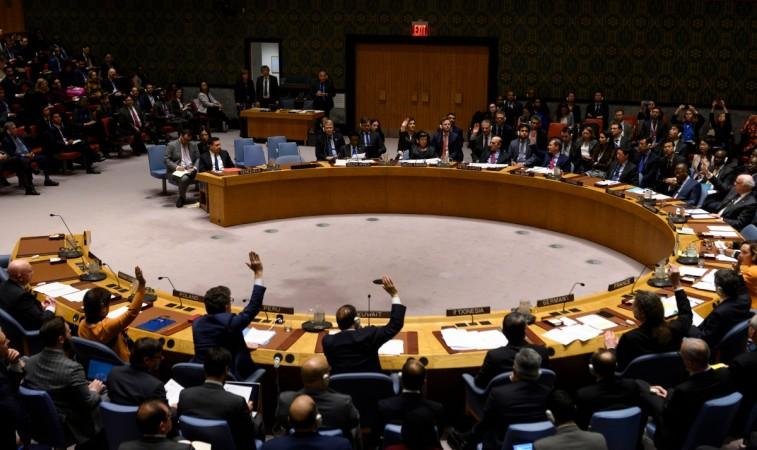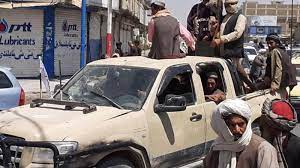A Global Spotlight on South Asia
The United Nations Security Council (UNSC), the world’s most powerful peacekeeping body, is set to convene in a high-stakes closed-door session on May 5, 2025, to address escalating tensions between nuclear-armed neighbors India and Pakistan. The trigger? The devastating April 22 Pahalgam terror attack, which claimed 26 lives, mostly tourists, and plunged the region into a diplomatic maelstrom. This article unpacks the geopolitical chessboard, the human toll of terrorism, and the urgent quest for de-escalation.
The Pahalgam Attack – A Catalyst for Crisis
The Horror Unfolds
On a serene spring morning in Pahalgam, militants opened fire on tourists trekking through Baisaran’s iconic meadows. Among the 26 victims were families from Delhi, a South Korean honeymoon couple, and local guides. Survivor accounts paint a harrowing picture: “We hid behind rocks while bullets whizzed past. The ponies bolted; the snow turned red,” recounted Meena Kapoor, a teacher from Mumbai.
India’s Retaliatory Measures
Prime Minister Narendra Modi’s government responded with unprecedented punitive actions:
-
Indus Waters Treaty Suspension: Halting water-sharing talks, impacting Pakistan’s agriculture-dependent economy.
-
Visa Freeze: Canceling 10,000+ visas for Pakistani nationals, including students and medical patients.
-
Trade Embargo: Banning imports (worth $500 million annually), notably textiles and surgical instruments.
-
Diplomatic Isolation: Expelling Pakistan’s Chargé d’Affaires and downgrading ties.
Why It Matters: These steps signal India’s shift from strategic restraint to assertive deterrence, echoing its 2019 response to the Pulwama attack.
The UNSC Showdown – Players, Politics, and Pitfalls
Behind Closed Doors: What “Consultations” Mean
UNSC closed consultations are private, informal discussions without official records. Unlike public meetings, they allow candid dialogue but lack binding outcomes. Pakistan, leveraging its 2025 non-permanent seat, pushed for this session, framing the crisis as a “regional flashpoint.”
Key Actors & Agendas
-
China: A historic ally of Pakistan, likely to advocate for dialogue while shielding Islamabad from censure.
-
USA & France: Staunch India partners; expected to emphasize counterterrorism and restraint.
-
Russia: Balancing ties with India and its growing Pakistan engagement (e.g., energy deals).
-
Greece (UNSC President): Neutral mediator, yet vocal critic of terrorism post-Pahalgam.
The Veto Wildcard: Any resolution condemning Pakistan risks a Chinese veto, while India-focused drafts could face Western resistance.
Pakistan’s Gambit
Islamabad’s narrative frames Kashmir as a “disputed territory” and accuses India of “state terrorism.” However, its credibility is dented by:
-
Global FATF Grey List History: Past links to groups like Jaish-e-Mohammed (JeM).
-
Admissions of Complicity: Leaked 2023 audio of a Pakistani minister discussing “support for freedom fighters.”
Diplomatic Maneuvers – Jaishankar’s Global Outreach
Building a Coalition
External Affairs Minister S. Jaishankar’s 72-hour diplomacy blitz targeted UNSC members:
-
USA & UK: Secured bipartisan condemnation; Senator Marco Rubio termed Pakistan a “terrorism incubator.”
-
France & Russia: Pushed for listing JeM affiliates under UNSC’s 1267 sanctions.
-
Greece & Algeria: Garnered support for India’s right to self-defense under UN Charter Article 51.
Notable Omission: China, reflecting frosty ties post-Galwan clashes and BRI disputes.
The UN’s Tightrope Walk
Secretary-General António Guterres’ calls for “maximum restraint” drew mixed reactions:
-
India’s Retort: “Restraint shouldn’t mean impunity for terrorists,” asserted MEA spokesperson Randhir Jaiswal.
-
Pakistan’s Ploy: PM Shehbaz Sharif tweeted, “Dialogue, not drones, will bring peace.”
The Human Cost – Beyond Geopolitics
Tourism in Peril
Pahalgam’s $300 million tourism industry, recovering from 2020 pandemic lows, faces collapse. Local guide Arif Lone lamented, “Our phones stopped ringing. Even pilgrims are scared.”
Visa Freeze Fallout
-
Students Stranded: Over 1,200 Pakistani med students in India face deportation.
-
Divided Families: Cross-border marriages (estimated 500+ annually) hang in limbo.
Historical Echoes – Lessons from Past Crises
Kargil to Balakot: A Pattern of Proxy War
-
1999 Kargil War: Pakistan-backed infiltrators triggered a limited war, resolved under U.S. pressure.
-
2008 Mumbai Attacks: UNSC condemned Lashkar-e-Taiba but failed to sanction Pakistan’s ISI.
-
2019 Pulwama-Balakot Cycle: India’s air strikes shifted red lines, yet UNSC remained silent.
Expert Insight: “The UNSC’s paralysis emboldens non-state actors,” says Brookings scholar Tanvi Madan.
The Road Ahead – Scenarios & Solutions
Scenario 1: Escalation Spiral
-
Risk: Border skirmishes, cyberattacks, or naval brinkmanship in the Arabian Sea.
-
Trigger: Another major terror strike or accidental military clash.
Scenario 2: Quiet Diplomacy
-
Backchannel Talks: Leveraging UAE/Saudi mediation, as in 2021 Kashmir ceasefire.
-
Counterterrorism Pact: Joint intelligence-sharing, modeled on India-U.S. LEEDs Initiative.
Scenario 3: UNSC Intervention
-
Possible Outcomes:
-
Symbolic Condemnation: A watered-down statement “deploring” violence.
-
Sanctions Push: Targeting JeM financiers if China relents.
-
Peacekeeping Proposal: Unlikely, given India’s rejection of “external interference.”
-
Bottom-Line: A Test for Global Governance
The Pahalgam crisis is more than a bilateral feud—it’s a litmus test for the UNSC’s relevance in an era of multipolar rivalry. While closed-door talks may cool tempers, lasting peace demands accountability for terrorism and a rethink of South Asia’s security architecture. As Greek Ambassador Sekeris noted, “When elephants fight, the grass suffers. Here, the grass is global stability.”



